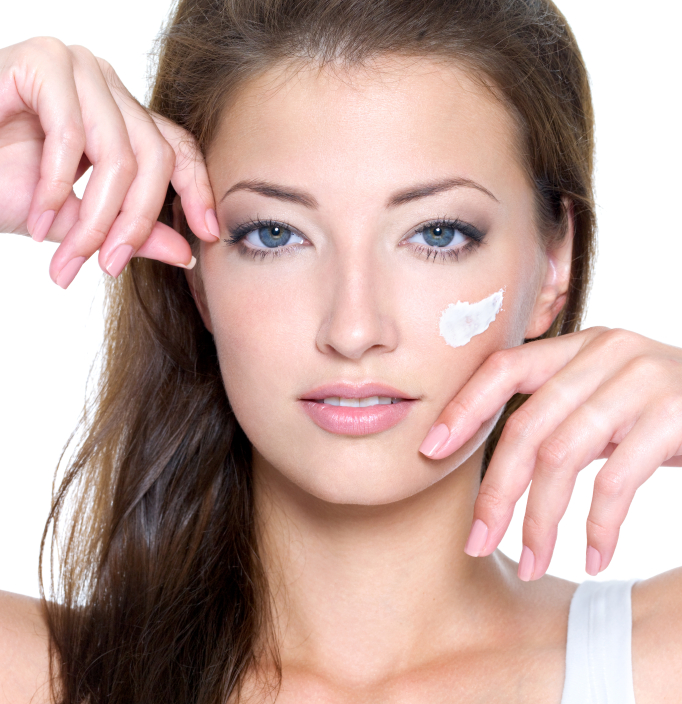Sunscreen for younger looking skin: why sunscreen is your best anti-ageing weapon
Posted by Naturally Safe Cosmetics on 24th Nov 2017
Skincare is such an important part of our daily health routine. Most of us have got our ritual of cleansing, toning and moisturising down pat but many of us forget one vital aspect – the importance of SPF in our moisturiser. Without SPF, your moisturiser will not provide your skin with the protection it needs while you're constantly zipping in and out of the sun during your normal daily activities.
When we think of sunscreen, many of us only think of wearing it on our bodies when we’re planning to spend time in the great outdoors: going to the beach, or for a bushwalk, or enjoying a picnic at the park. We think of sunscreen in terms of prevention of sunburn and skin damage that can lead to skin cancer, but we don’t consider the anti-ageing benefits that go with regular sunscreen use as well.
When it comes to the Sun’s rays, we have UVA and UVB rays to contend with. UVB rays are normally responsible for the burning of the superficial layers of your skin and can play a key role in the development of skin cancer. UVA rays, on the other hand, penetrate much deeper into the dermis and repeated exposure can lead to photoaging (premature skin ageing, age spots and wrinkling caused by light).
So, it stands to reason that a broad spectrum sunscreen with protection against both UVA and UVB rays can assist in the prevention of premature ageing caused by the sun. In fact, the anti-ageing benefits of SPF have been backed by science. Research has shown that people who use sunscreen daily have significantly younger-looking skin.
Consider the results of a 4 ½ year study published in the Annals of Internal Medicine. Researchers took 903 participants and divided them into 4 groups. The first group applied a sunscreen with an SPF15 or higher on a daily basis to their head, neck, arms and hands at the start of each day and reapplied after extended sun exposure or contact with water. The second group applied sunscreen as they normally would (even if that meant not at all). The third group took a beta-carotene supplement and the fourth group took placebo pills. So what were the results? At the end of the study, researchers found:
- The individuals who had applied sunscreen daily showed no visible signs of increased ageing on their skin – pretty amazing, right?
- On the other hand, the participants who only wore sunscreen some or none of the time displayed an average 24 percent more skin ageing in the form of dry, wrinkled, blotchy and sometimes crusty skin.
- The results as far as any benefit derived from the beta-carotene supplement were inconclusive.
Of course, we cannot prevent ageing forever but this study did show that using sunscreen on a daily basis can result in your skin looking younger for longer.1 This is because broad-spectrum sunscreens with an SPF15 or higher block out 93 percent of ultraviolet (UVB) rays and filter out UVA rays as well.
When it comes to our bodies, our hands and neck/decolletage are amongst the first areas to display visible signs of ageing, with age spots developing on the backs of our hands and wrinkling of the thin skin of the neck - so you’ll definitely want to keep those areas protected.
And, of
course, the other main area that can really show our age is our face, through
wrinkling, dark spots and drooping eyelids. That’s why daily SPF protection for
your face is so vital.
You may be aware that there are two types of active ingredients in sunscreen - minerals (like zinc oxide) and chemicals (like avobenzone, oxybenzone & octyl methoxycinnamate). Unfortunately, a large portion of sunscreens contain the latter and the problem with chemical sunscreens (which are designed to be absorbed into the skin, by the way) is that they can potentially cause more harm than good, as revealed in this recent article from United Press International which reported that a popular sunscreen chemical breaks down into toxic compounds when exposed to sun and water. In addition, laboratory studies indicate that some chemical UV filters may mimic hormones when absorbed into our bodies, which can mess with our endocrine system. Also, physicians report sunscreen-related skin allergies, all of which raises important questions about the unintended human health consequences from frequent sunscreen application.2
The bottom line? When you choose a natural sunscreen, whether it’s for your face or your body, you don’t compromise on sun protection, but you do lose the harmful effects of toxic sunscreen chemicals AND you can keep your skin (your body’s largest organ) looking more youthful for longer.
For your body, you should choose a natural sunscreen that provides a physical barrier of protection from the Sun with zinc oxide. This ingredient does not penetrate your skin but sits on the surface and deflects the Sun’s harmful rays.
For your face, I believe it is absolutely imperative that you use a moisturising product with SPF. Of course, you can use any natural sunscreen on your face but if you prefer a dedicated facial moisturiser with built-in sun protection, Naturally Safe Cosmetics has a great range of both tinted and untinted facial moisturisers to choose from. If you’re lucky enough to have clear skin, one of our gorgeous tinted moisturisers could be all that you need to shield your skin from damage and give it a natural, healthy glow every day. If, like me, you prefer to enhance your ‘natural beauty’ with makeup, then our dedicated organic face moisturisers with SPF will create the perfect base for your foundation. You’ll find them in our organic skin care category under moisturisers or you can narrow down your search and locate these SPF beauties in our natural sunscreen category.
1 www.womenshealthmag.com
2 ewg.org

